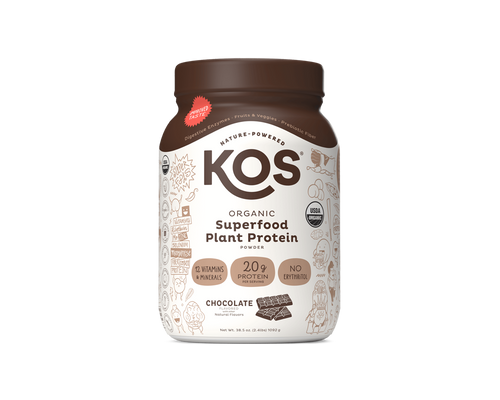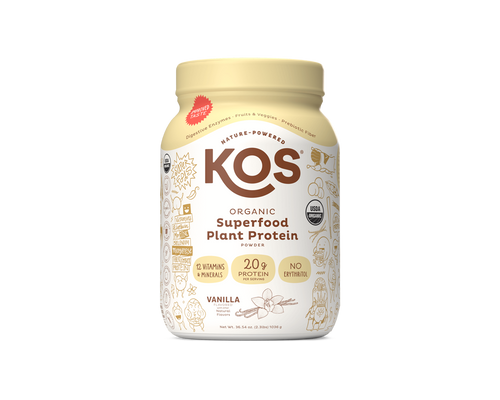Table of Contents
Can Vegetarians Benefit from Protein Shakes?
Like many vegetarian and vegan dieters, you are seeking protein-rich foods to help you meet your requirements. Perhaps you are vegetarian but also vegan and looking for plant-based protein sources.
Well, protein powders can be a great way of getting enough protein in your diet while following a vegetarian or vegan diet regimen. Not only do they make it easy to include protein-rich content in your diet, but they are also typically dairy-free and vegan-friendly.
The predominant main ingredient in plant-based protein powders is pea protein, and pea protein contains all nine essential amino acids, making it a "complete" protein.

Soy protein vs pea protein
Soy protein is a complete protein, as it provides all of the essential amino acids. Soy protein is also saturated fat-free, as well as being low in fat.
Soy is loaded with nutrients, including B vitamins, fiber, potassium, magnesium, and high-quality protein. Like pea protein, soy protein is a complete protein, containing all nine essential amino acids that the body cannot manufacture and have to be consumed from food.
Because soy has certain phytoestrogenic properties, the effects of soy may fluctuate depending on the quantity of estrogens in the body. And there has been some ongoing controversy concerning the overall safety and efficacy of soy given its phytoestrogen load.
Pea protein, on the other hand, is a complete protein that burns cleanly and has no troubling biochemical issues. Because of its cost-effectiveness and high nutritional value, pea protein has garnered a lot of attention.
Pea protein is also a non-GMO foodstuff, has great functional properties, and is gluten-free. Pea protein has nutritional and food technology properties that have proven beneficial to the food production and nutritional enhancement industry as a whole.
Pure pea protein powder
What are the benefits of pea protein powder for vegetarians? Thanks for asking. The benefits of pea protein are many. In vegan and vegetarian diets, pea protein powder can play a vital role as a vegan-friendly protein source.
It is high in amino acids and is a complete protein, making it an excellent choice for those determined to use only plant-based protein in their protein regimen.
Your body cannot make the nine essential amino acids, hence the word "essential". We have to ingest these nine amino acids through eating. Pea protein is the answer. It's a great source of branched-chain amino acids (BCAAs), especially arginine — which supports healthy blood flow and heart health — and leucine, isoleucine and valine — which promote muscle growth.

Non-soy vegan protein
What other protein sources are available in the meatless life of a vegan? Barring soy, which is problematic for some, there are a variety of protein options for vegans, including hemp, quinoa, and brown rice. These plant-based sources of protein provide essential amino acids required for building and maintaining muscle mass, and they help increase endurance and decrease fatigue.
What are other non-soy protein options for vegans? Almost every vegetarian athlete's diet includes beans. Lentils, chickpeas, and black beans are delicious and protein-filled, and each cooked cup contains around 12 grams of protein. Lentils, though, contain 18 grams per cup.
Quinoa is known by some as a "super grain", and it yields around 11 grams of protein per cup. Quinoa is gluten-free, and makes a good substitute for rice as part of a high-protein vegetarian meal.
Broccoli and spinach are very high in protein, even if they don't intuitively seem like they would be high protein foods. Broccoli offers up about 5 grams of protein per cup. Which can be equal to one stalk of the tree-like stuff.
Unflavored pea protein powder
Unflavored pea protein powder is a terrific source of plant-based protein for vegetarians, vegans, and those who don't want their protein to be imbued with strange and exotic flavors.
Flavored pea protein-based powders? The more specific the flavor you have, the less mixable it is with other beverages or protein favorites. Unflavored pea protein, though, becomes a nutrient-rich blank slate. You can freely create your own flavor sensation! Your every innovation will be utterly unique.
Remember, you can use these protein powder in your cooking, too. Unflavored powders can boost the protein in a dish without weirdly tweaking the flavor.
Unflavored plant protein powders are terrific for baking and cooking, and are typically higher in healthy fats and lower in saturated fats, the ones that clog your arteries.

Whey vs soy protein
Whey protein is a type of protein derived from dairy sources, as mentioned earlier. Yes, it’s high in amino acids, making it a good supplement for muscle growth and repair. The problem? It is a product of the factory farmed meat industry, which is an increasingly dire ecological issue, and whey gives you gas. Lots and lots of gas.
On the other hand, soy protein is a plant-based alternative to whey protein. It’s also high in essential amino acids, making it a nice supplement for those looking to increase their overall protein intake.
But soy is the subject of much ongoing scientific and social controversy regarding its effects on human health and its phytoestrogens.
All in all, a pea protein-based supplement offers the least complicated route to augmenting one’s diet with a protein powder.
Plant-based pea protein is a complete protein, can be sustainably produced, and has none of the divisive debate that characterizes the soy protein conversation. Pea protein is your vegan protein savior. Not to overstate the matter.
FAQs
What's the difference between soy and pea protein?
Soy protein is derived from soybeans, a legume of Asian origin. It is considered to be a complete source of essential amino acids and contains little fat. Soy protein is easily incorporated into recipes as an ingredient. Soy is controversial due to its phytoestrogen content.
Pea protein is derived from yellow split peas, another legume of high-protein content. Pea protein offers numerous health benefits with its high fiber content and ease of digestion;
Is it OK to have pea protein every day?
Yes, it is ok to have pea protein every day in moderation. It's also low in fat and calories, making it a good choice for those wishing to reduce their overall calorie intake.
Is pea protein hard on the kidneys?
Pea protein powder has been shown to support normal blood pressure. There is at present no evidence that pea protein has an ill effect on the kidneys.
That said, it is important to remember that everyone is different and individual responses to supplemental protein can vary, so those with pre-existing kidney conditions should consult their healthcare provider before consuming any type of protein powder.






